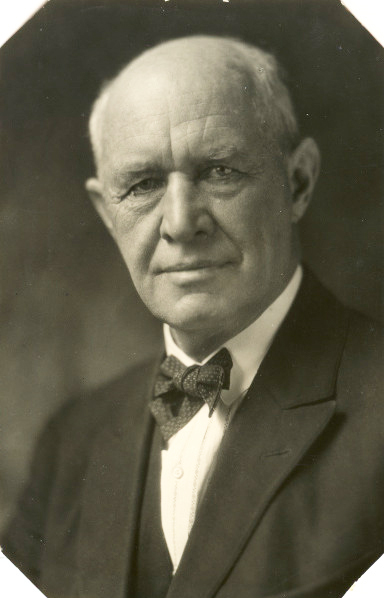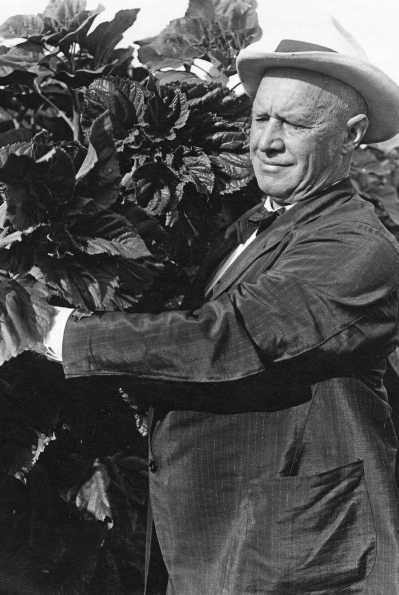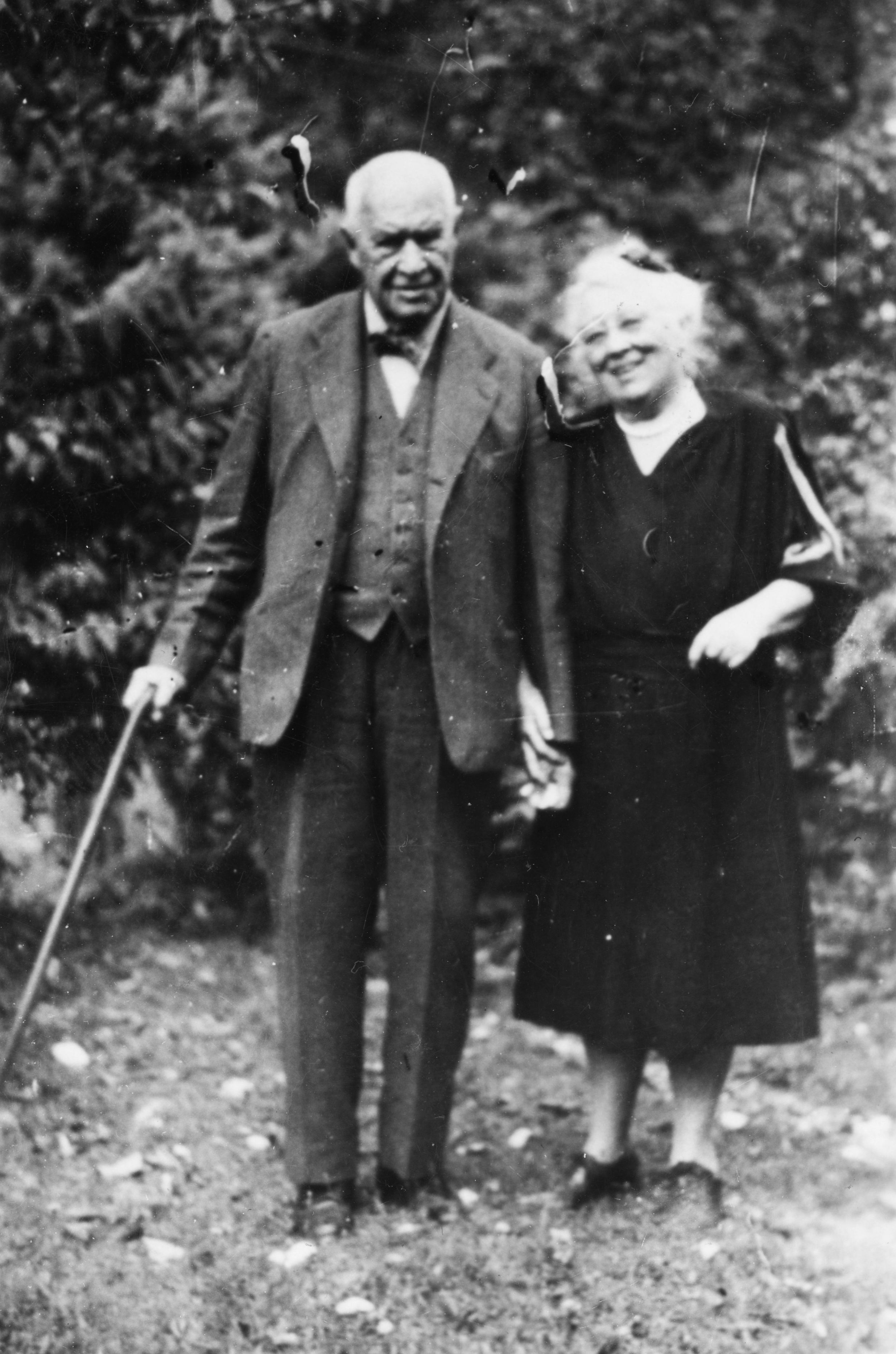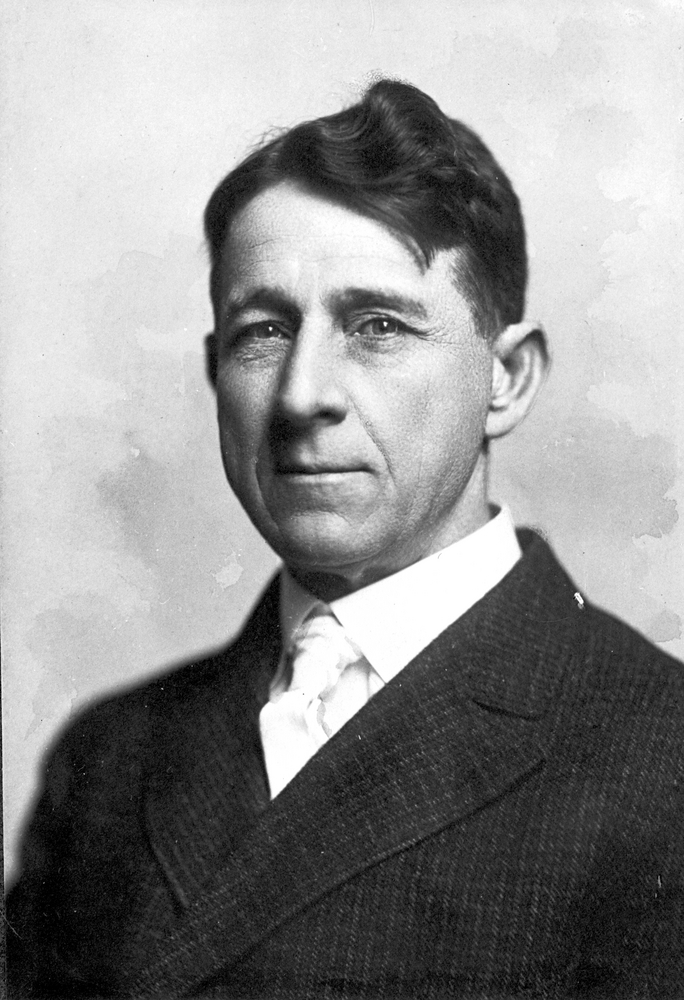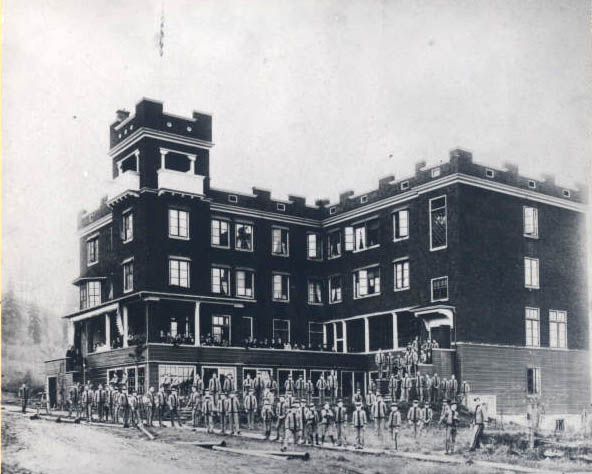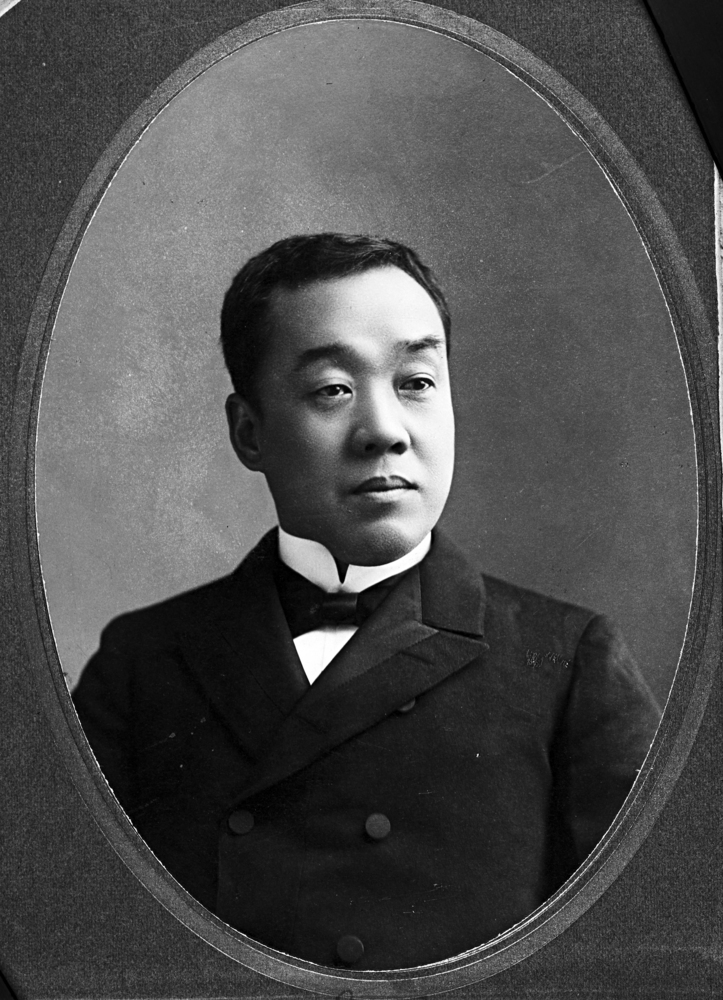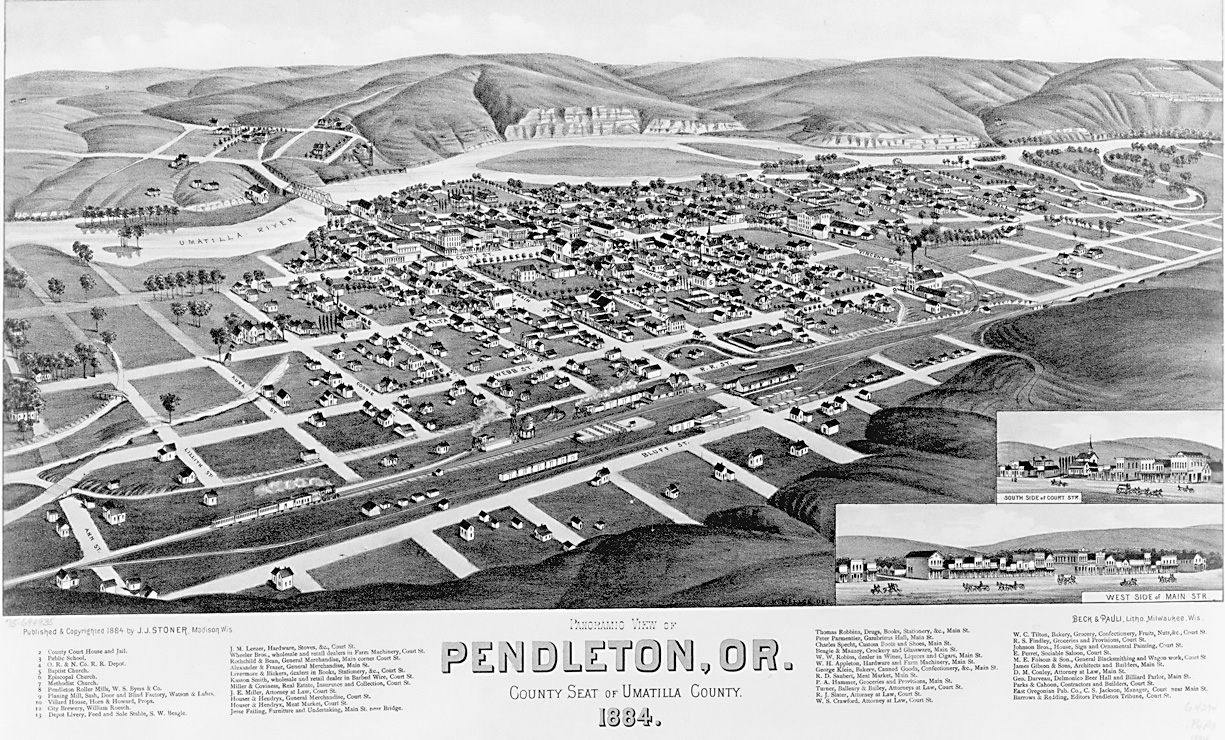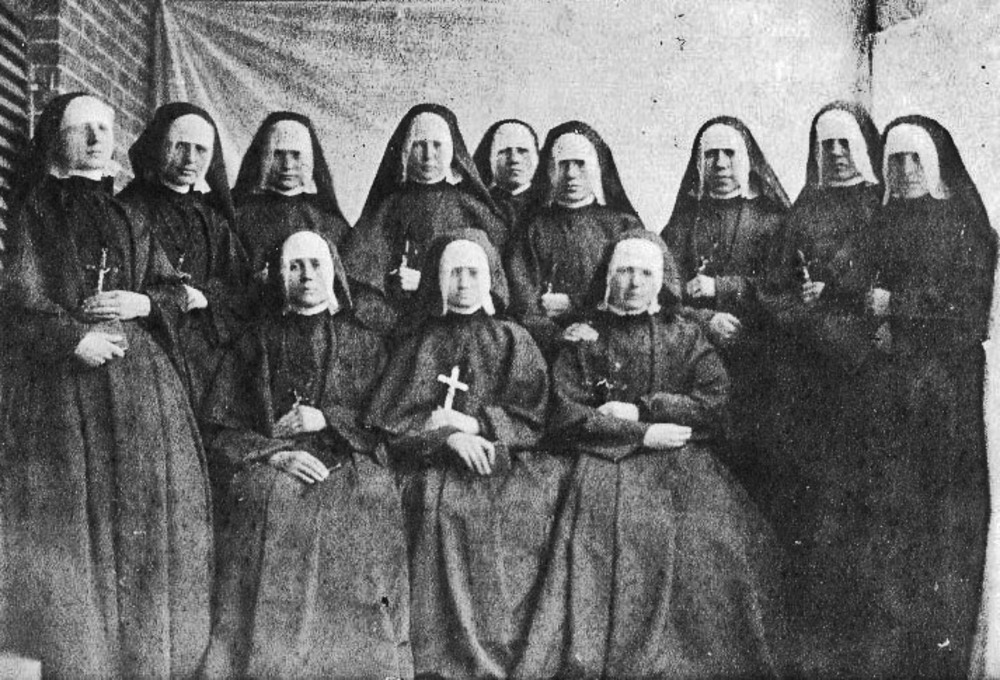Walter Pierce's long public career extended from the 1890s to the political turmoil involving the return of Japanese Americans to their Oregon homes following the Second World War. One of the more enigmatic of Oregon's public officials, voters elected Pierce to the governor's office in 1922 with the active support of the Ku Klux Klan. At the same time, Pierce had a reputation as a liberal on issues of gender, class, public power, and progressive taxation.
Born in Illinois in 1861, Pierce moved to Oregon in 1883 and eventually settled in northeastern Oregon where he married, raised beef cattle, taught school, and served as a school superintendent. In the mid-1890s, he returned with his family to Illinois to earn a bachelor-of- law degree at Northwestern University. The family then returned to Pendleton where Pierce practiced law, raised Hereford cattle, and speculated in land.
Northeastern Oregon voters elected Pierce to the Oregon Senate in 1902 where he supported a measure for public schools. Defeated for reelection in 1906, Pierce later gained a statewide reputation with the Oregon Farmer's Union and the Public Power League, focusing on developing Columbia River hydropower. He lost races for the U. S. Senate to Harry Lane in 1912 and the governorship to James Withycombe in 1918. As a Democratic Party progressive, he won an Oregon Senate seat again in 1916 and then lost in 1920.
Although his 1922 run for governor was rooted in issues of public power, passing a state income tax, and reforestation, Pierce revealed his life-long nativism—tacitly supporting the Klan and backing the anti-Catholic Compulsory School Bill, a measure aimed directly at parochial schools. Oregon's largely homogenous ethnic and religious voters approved the measure, but the Oregon Supreme Court declared the it unconstitutional, a decision upheld by the U. S. Supreme Court (Pierce vs. Society of Sisters, 1925). Pierce also supported the Alien Property Act, a 1923 law directed at immigrant Japanese in Portland and the Hood River Valley, prohibiting aliens from owning or leasing land.
When Pierce supported Wisconsin's Progressive Party candidate Robert LaFollette for the presidency in 1924, he quickly lost favor with the Klan and his fellow Democrats. Defeated for the governor's office in 1926, Pierce returned to his northeast Oregon ranch. In 1928, he lost a race for congressman from the second district but tried again and was successful in the Franklin Roosevelt landslide of 1932. Pierce married his third wife, Cornelia Marvin (the first State Librarian), in 1928.
Walter Pierce served ten years in the U. S. House of Representatives and proved himself a firm believer in New Deal policies. He supported Columbia River hydropower, the Social Security Act, and believed government had broad responsibilities for the general welfare.
Pierce also held fast to his nativist beliefs, supporting the incarceration of Japanese-Americans after Pearl Harbor and campaigning in 1944 and 1945 against the return of Japanese citizens and aliens to their homes. After his congressional defeat in 1942, Walter Pierce retired to his new home near Salem where he died in 1954 at the age of ninety-one.
-
![]()
Walter Pierce, February 1924.
Oreg. Hist. Soc. Research Libr., OrHi 89968
-
![]()
Governor Walter M. Pierce, 1925.
Oreg. State Univ. Archives, Harriet's Collec., HC0406
-
![]()
Governor Walter M. Pierce, 1925.
Oreg. State Univ. Archives, Harriet's Collec., HC0406
-
![]()
Governor Walter Pierce (third from left) and others, 1925.
Oreg. State Univ. Archives, Harriet's Collec., HC0969_Maris_Pierce
-
![]()
Walter and Cornelia Marvin Pierce, Eola, 1945.
Oreg. Hist. Soc. Research Lib., bb005931
Related Entries
-
![Cornelia Marvin Pierce (1873-1957)]()
Cornelia Marvin Pierce (1873-1957)
From her first arrival in Oregon in 1905 until her death in 1957, Corne…
-
Harry Lane (1855-1917)
Harry Lane epitomized the spirit and activism of Oregon’s progressive r…
-
![Hill Military Academy]()
Hill Military Academy
Hill Military Academy was a prominent military school in Portland, Oreg…
-
![Japanese Americans in Oregon]()
Japanese Americans in Oregon
Immigrants from the West Resting in the shade of the Gresham Pioneer C…
-
![Ku Klux Klan]()
Ku Klux Klan
Fiery crosses and marchers in Ku Klux Klan (KKK) regalia were common si…
-
![Pendleton]()
Pendleton
Pendleton, a city of 17,107 in the 2020 census, sits in the foothills o…
-
![Pierce v. Society of Sisters (1925)]()
Pierce v. Society of Sisters (1925)
On June 1, 1925, in Pierce v. Society of Sisters of the Holy Names of J…
Related Historical Records
Map This on the Oregon History WayFinder
The Oregon History Wayfinder is an interactive map that identifies significant places, people, and events in Oregon history.
Further Reading
Gerald Schwartz, "Walter Pierce and the Tradition of Progressive Reform: A Study of Eastern Oregon's Great Democrat." Ph.D. dissertation, Washington State University, 1969.
Pierce, Walter M.Oregon Cattleman, Governor, Congressman: Memoirs and Times of Walter M. Pierce, edited and expanded by Arthur H. Bone. Portland: Oregon Historical Society Press, 1981.
Robert Burton, Democrats of Oregon: The Pattern of Minority Politics, 1900-1956. Eugene: University of Oregon Books, 1970.


